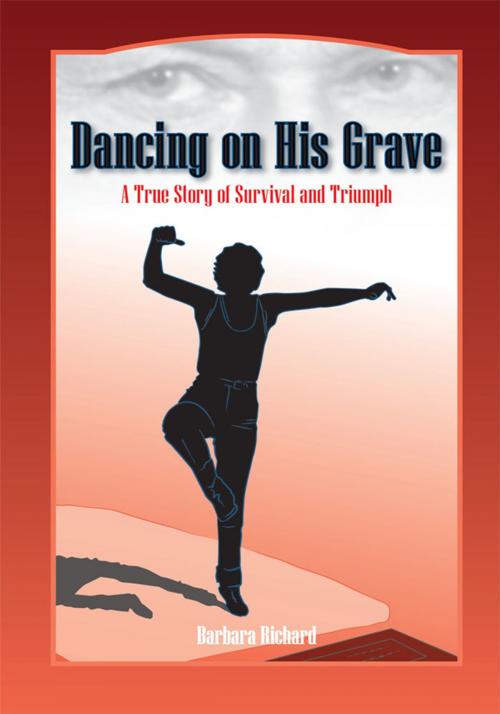| Author: | Barbara Richards | ISBN: | 9781425199876 |
| Publisher: | Trafford Publishing | Publication: | February 12, 2007 |
| Imprint: | Trafford Publishing | Language: | English |
| Author: | Barbara Richards |
| ISBN: | 9781425199876 |
| Publisher: | Trafford Publishing |
| Publication: | February 12, 2007 |
| Imprint: | Trafford Publishing |
| Language: | English |
My earliest memories are only fear. A great hurting fear that made my heart as big as a pumpkin that welled up into my throat, choking me, dizzying my head, turning my legs to rubber. Fear of moving and making noise, fear of sleep that was invaded by terrible nightmares, fear of waking up to the daily beatings for wet beds, fear of the dark, fear of guns and knives, fear of loud noises, fear of making a mistake, fear of forgetting, fear of Mom going away, and most of all, fear of the constant presence we called Daddy. These are my oldest sister's words.
Dancing on His Grave is a memoir set on an eastern Montana ranch between 1930 and 1955. My four sisters, my mother and I all contribute first person narrative to this story, along with excerpts from the extensive journals my mother kept throughout her life. It is the story of five sisters who survived unspeakable deprivation and abuse, sexual and physical, at the hands of our sadistic father. A friend gave me his strong opinion. As the psychologist for the prison in Deer Lodge, he said, I meet inmates with stories like yours all the time. What makes your story unique is the outcome. This story is not about him. This is about five little girls who literally survived him, excelled in school, married and raised families of normal, productive, contributing citizens.
My father was not an alcoholic or drug addict. All his abuse was administered cold sober. I am convinced he was not mentally ill, in the legal or moral sense of the phrase. He knew right from wrong, but as a narcissistic sociopath, he believed that the world revolved around him, so the rules of decency that other people follow did not apply. The only rule he held himself to, was 'Don't get caught'. The state of being purely evil does not constitute mental illness. By my estimation, he was born without a conscience, and perhaps without a soul.
The most important message of this story is the resilience and strength of the human spirit.
My earliest memories are only fear. A great hurting fear that made my heart as big as a pumpkin that welled up into my throat, choking me, dizzying my head, turning my legs to rubber. Fear of moving and making noise, fear of sleep that was invaded by terrible nightmares, fear of waking up to the daily beatings for wet beds, fear of the dark, fear of guns and knives, fear of loud noises, fear of making a mistake, fear of forgetting, fear of Mom going away, and most of all, fear of the constant presence we called Daddy. These are my oldest sister's words.
Dancing on His Grave is a memoir set on an eastern Montana ranch between 1930 and 1955. My four sisters, my mother and I all contribute first person narrative to this story, along with excerpts from the extensive journals my mother kept throughout her life. It is the story of five sisters who survived unspeakable deprivation and abuse, sexual and physical, at the hands of our sadistic father. A friend gave me his strong opinion. As the psychologist for the prison in Deer Lodge, he said, I meet inmates with stories like yours all the time. What makes your story unique is the outcome. This story is not about him. This is about five little girls who literally survived him, excelled in school, married and raised families of normal, productive, contributing citizens.
My father was not an alcoholic or drug addict. All his abuse was administered cold sober. I am convinced he was not mentally ill, in the legal or moral sense of the phrase. He knew right from wrong, but as a narcissistic sociopath, he believed that the world revolved around him, so the rules of decency that other people follow did not apply. The only rule he held himself to, was 'Don't get caught'. The state of being purely evil does not constitute mental illness. By my estimation, he was born without a conscience, and perhaps without a soul.
The most important message of this story is the resilience and strength of the human spirit.















